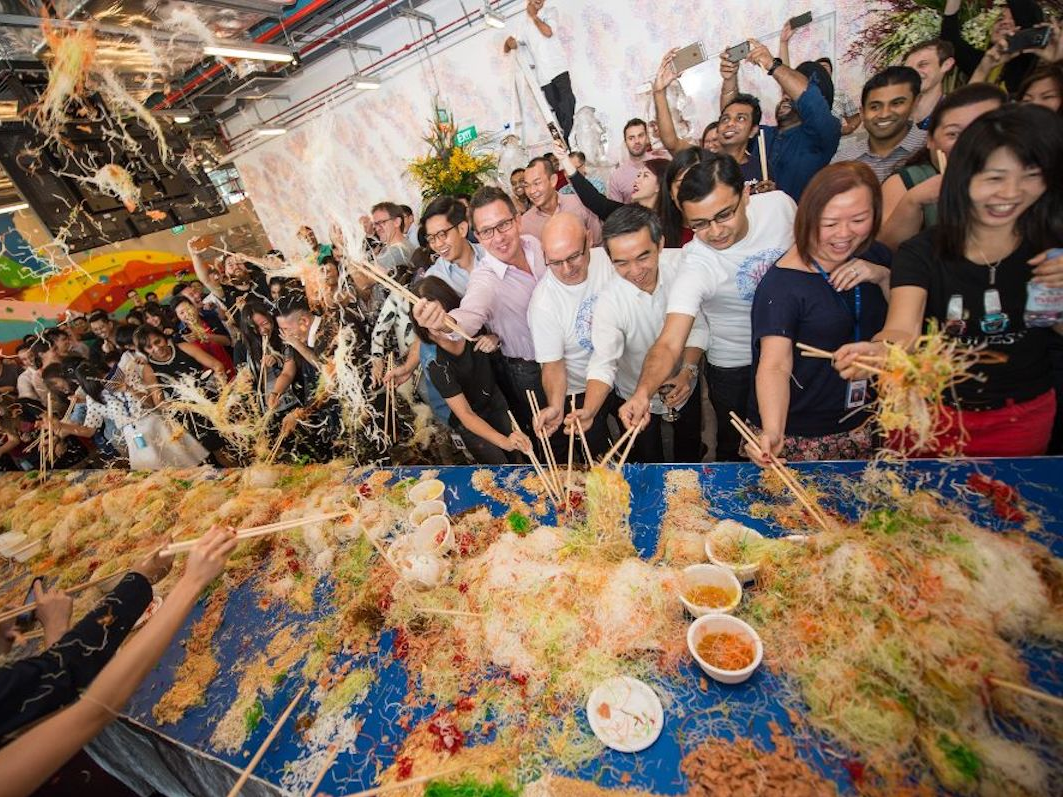- Free food has been a major perk at tech companies like Facebook, Google, and Twitter.
- But California municipalities are cracking down on workplace cafeterias that offer free meals.
- Business Insider spoke with Glassdoor’s chief economist Dr. Andrew Chamberlain, who hasstudied how certain benefits correlate with overall employee satisfaction.
- Chamberlain said that companies can easily establish alternative means of providing their employees with free meals.
- He added that employers can also boost morale by bolstering standard, traditional benefits like 401K plans, healthcare, and paid-time-off policies.
Free food has long been a perk at major tech companies like Facebook, Twitter, Dropbox, LinkedIn, Google, and Airbnb.
But local governments in California are working to ensure there’s no such thing as a free lunch for tech workers. Mountain View, California has passed legislation banning the construction of new workplace cafeterias offering free food, in order to assist local retailers. San Francisco is also reportedly looking into a similar ban, according to Business Insider’s Leanna Garfield.
So what are big tech companies to do, now that they have one less flashy perk in their metaphorical recruitment utility belts?
Well, Glassdoor chief economist Dr. Andrew Chamberlain is skeptical that this spells the end of free grub for tech employees. He said that employers like Facebook and Twitter can offer to subsidize employees’ meals, hire local eateries to cater lunch on a rolling basis, or pay food truck vendors to gather around the office and distribute free meals.
But if one of the tech industry's signature perks is really destined to be binned like soggy leftovers, Chamberlain said that the change won't likely have much of an impact on employee satisfaction.
According to Chamberlain, the benefits that employees care most about are:
- Quality health insurance.
- Generous vacation and paid-time-off packages.
- A strong 401K plan.
In a 2016 study, Chamberlain found that these fundamental benefits correlate the most with happy and satisfied employees. To reach that finding, Glassdoor reviewed 470,000 benefits reviews on its site, corralling a sample of 1,226 US employers that each had at least 20 benefits reviews.
These standard, decidedly-un-flashy perks aren't too exciting. But they seem to be what employees care most about.
"These three core benefits were very closely linked to how satisfied people are in their jobs," Chamberlain told Business Insider. "The other more flashy benefits were less correlated with satisfaction. That was true across the board. It didn't vary very much by industry that we looked at."
So if Glassdoor's findings regarding employee satisfaction are any indication, big employers won't have to get too creative in order to top free food.
After all, free grub might sound like a mouth-watering perk, but this isn't the first time that company cafeterias have come under fire. The Centers for Disease Control and Prevention found that employees who get free food or drinks are consuming almost 1,300 calories a week at work - and that around 70% of those calories came from free food.
And the freebies and fancy-sounding perks could potentially have a dark side, in the hands of some employers. J. Maureen Henderson wrote in Forbes that the inundation of workplace freebies has the potential to act as a substitute "for more substantive workplace upgrades or window-dressing to cover up a lack of respect for true work-life balance."
"I think that any companies who neglect those benefits and instead invest in flashier things like subsidized gym memberships or free snacks or tuition assistance - all of those perks are nice but if they're being offered at the expense of these programs, that's probably a miscalculation," Chamberlain said.
Do you work at a company that offers employees free meals? Let us know what it's like - email [email protected].

